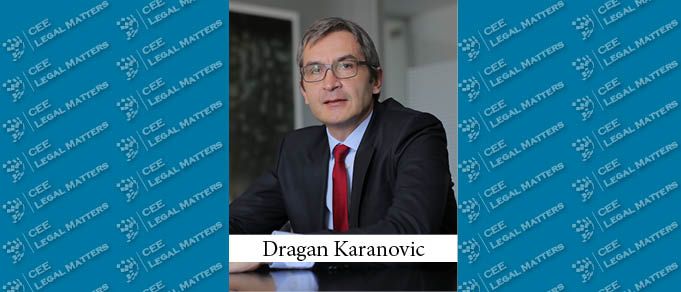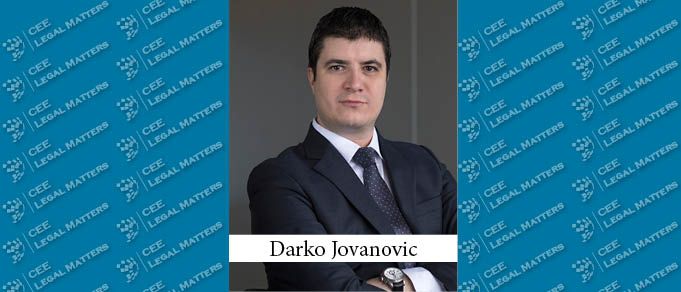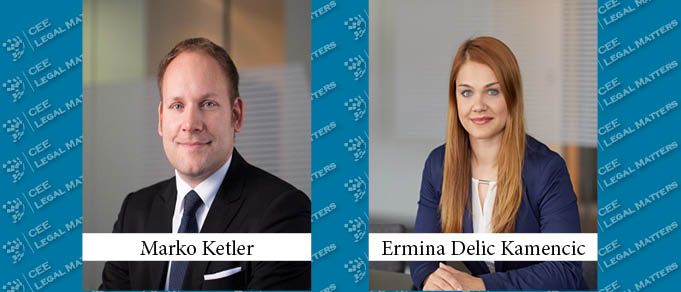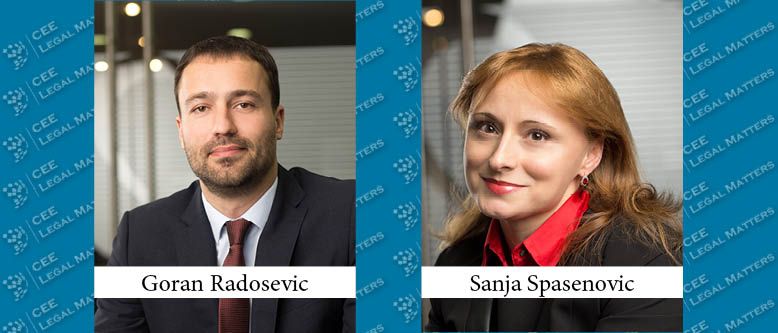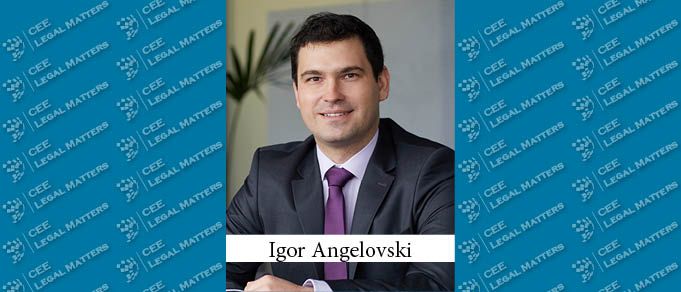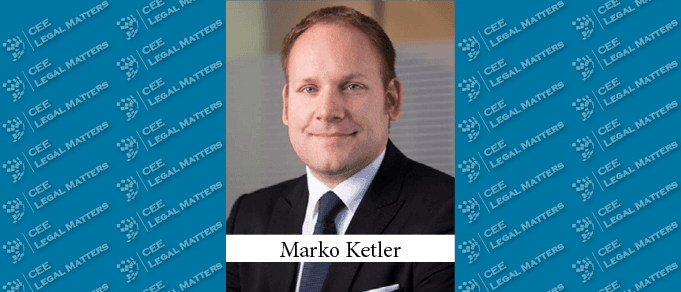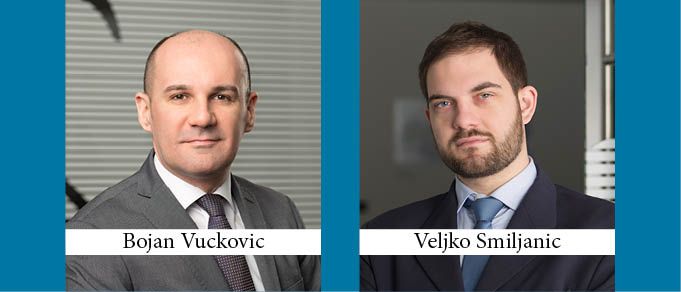The Future is Now
Mergers and Merging on the Serbian B&F Market
Some might say that Serbia’s banking sector is blooming and steadily consolidating. Others may argue that actual consolidation is still far away. Either way, players on the local market are changing. This is clear now following the exit of Societe Genarale, BNP’s Findomestic, and two Greek banks, followed by the bold revamp of Hungary’s OTP and the strengthening of domestic investors such as AIK and Direktna Bank.
Implications of Benchmark Rates Reforms in Slovenia
The wide usage of benchmark rates and their key role in the financial system requires that they be reliable and defiant to any manipulation. To ensure this, the EU undertook to reform the benchmark rate determination process and improve market confidence in them, resulting in the adoption of the EU Benchmarks Regulation (the BMR).
Data Breach Notification Obligations in Serbia - Sector Specific or Generally Applicable Obligations
At the moment, there is no generally applicable obligation to report a personal data security breach in Serbia. This type of obligation is currently envisaged only by certain sector specific laws such as the Law on Electronic Communications.
All Together Now: EU's New Foreign Investment Screening Regulation
This April, the new EU foreign investment screening regulation entered into force, with terms scheduled to become applicable on October 11, 2020. The regulation was conceived and designed to provide member states with a valuable tool to employ in defending their strategic interests. We spoke to several experts in the region to learn more.
The New Law on Healthcare Protection
At the beginning of April 2019, the Serbian Parliament adopted the new Law on Healthcare Protection (the “Law”), with the aim of improving the legal framework and facilitate better functioning of the healthcare system in Serbia, aligning it more closely to EU standards in this field.
Trends in Liability for Defective Products Involving Vaccines
Pharmaceutical products have been in the spotlight of the Council of the European Union’s Product Liability Directive since its adoption in 1985. Despite the amount of time that has passed, some legal uncertainties remain that strike directly at the notion of defectiveness, as well as the causal link between the defect and the damage (which proved to be even more important in the case of pharmaceutical products). Establishing such causal link in cases involving vaccines is notoriously difficult, especially from the perspective of a lay consumer. This has led some EU member states, such as France, to introduce case law aimed at facilitating the burden of proof in specific sectors.
The Corner Office: Performance Reviews
In The Corner Office we ask Managing Partners across CEE about their unique roles and responsibilities. The question this time around: How do you do performance reviews, and how important are they to the planning and management of the firm?”
Support Scheme for Renewables in Serbia: A New Chapter
At the end of 2018, the Government of the Republic of Serbia extended the validity of the Decree on Incentive Measures for the Production of Electric Energy from Renewable Energy Sources and High-efficiency Cogeneration of Electric Energy and Thermal Energy (the “FIT Decree”) until the end of 2019. The FIT Decree was initially valid until the end of 2018.
Guest Editorial: Welcome to the Slovenian Legal Market
After a few troublesome years during the global financial crisis, it seems like Slovenia is on a positive economic route again. On December 14, 2018, S&P Global Ratings affirmed an “A+/A-1” credit rating for Slovenia with a positive outlook. Slovenian GDP has grown in the last two years between three and four percent annually, with a growth forecast for 2019 of 3.4 percent.
Investing in the Slovenian Automotive Production Industry
If you are a company conducting business in the automotive industry with intentions of expanding on the European market, where do you look? The answer may be the Central European country of Slovenia.
The Corner Office: Commonly-Lacking Skills
In The Corner Office we ask Senior and Managing Partners across Central and Eastern Europe about their unique roles and responsibilities. The question this time around: “What is the one skill, ability, or characteristic that fresh law school graduates in your country most commonly lack?”
A Transformation in the Balkan Legal Industry
A transformation of the legal profession is happening globally, and its effects are also felt, slowly but surely, in the law firms of Southeast Europe. Due to the changing expectations concerning the quality, speed, and commerciality of services, we are seeing a move towards even more client-oriented solutions. Traditional sectors are being replaced with emerging industries, and where we previously had slow processes, with low profit margins, we see value being generated at lightning speeds. Also, a new generation that entered the workforce recently is slowly imposing their own values and approaches, necessitating changes in structure and the values of traditional legal practices.
The Evolution of NPLs in Serbia
The NPL market in Serbia traditionally knows of only two concerns, embodied in the numbers 48 and 204. Although you would assume that numerology had something to do with this assertion, the backstory is actually a lot more appealing.
Designing a Competition Enforcement System: The Imperative of Credibility
It is not uncommon for post-communist societies to wrestle with the idea of competition enforcement. Executives of a more old-school bent are often confounded by having something which once was common market practice, sometimes even mandated by the state, now scrutinized and considered a serious infringement of law. This is why competition advocacy is a crucial tool for relatively inexperienced competition authorities – it would hardly be fair to beat upon market players legitimately unaware of changes to the modus operandi.
Dealer’s Choice Conference
Representatives of more than sixty law firms from across Central and Eastern Europe and from as far away as the United States, United Kingdom, and China came together in Prague on June 6, 2018, for the first ever Dealer’s Choice international law firm conference and CEE Deal of the Year Awards Banquet.
Guest Editorial: A Change in the Legal Narrative – Past Fears and New Opportunities
Until a few years ago, the narrative within legal practices, as in most service industries, focused mainly on austerity, small growth numbers, and the crises. Most legal practitioners feared an uncertain future and all the risks it held, including evolving client expectations, financial pressure, and the long-term impact of the global economic crisis.
Trade Secrets in Serbia
As Serbia is gearing up for EU accession, harmonizing with EU legislation and business practices becomes not only mandatory, but also a market necessity. Although there are discrepancies between business practices in Serbia and in the EU, one thing seems to be unanimous: local businesses, just like their international counterparts, think ahead when it comes to securing their assets. This applies to every type of business, but it is prevailingly visible in local medium-sized to large businesses which predominantly handle and/or deal with IP portfolios. Nowadays, in the ever-evolving digital world, where almost information is at the reach of one’s hand – even to those located in remote corners of the world – attention and focus are being switched to ensuring the adequate protection of trade secrets. This process is happening in Serbia as well.

